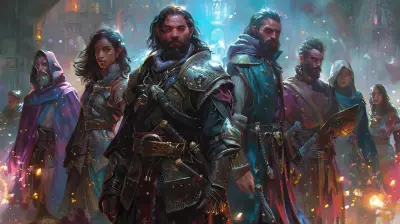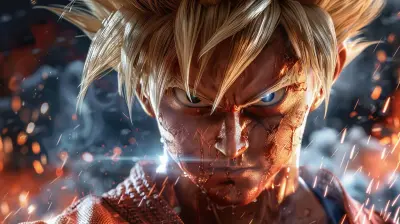Fantasy RPGs and the Hero's Journey: Analyzing Archetypal Quests
14 May 2025
Fantasy RPGs (Role-Playing Games) are more than just pixelated adventures with dragons, wizards, and loot. At their core, these games tap into one of the most universal storytelling frameworks of all time: the Hero’s Journey. Whether you realize it or not, every step you take in your RPG quest mirrors an ancient narrative structure that has been around for centuries. Why is this formula so timeless, and how does it continue to fuel some of the most iconic games in the genre? Let’s break it down.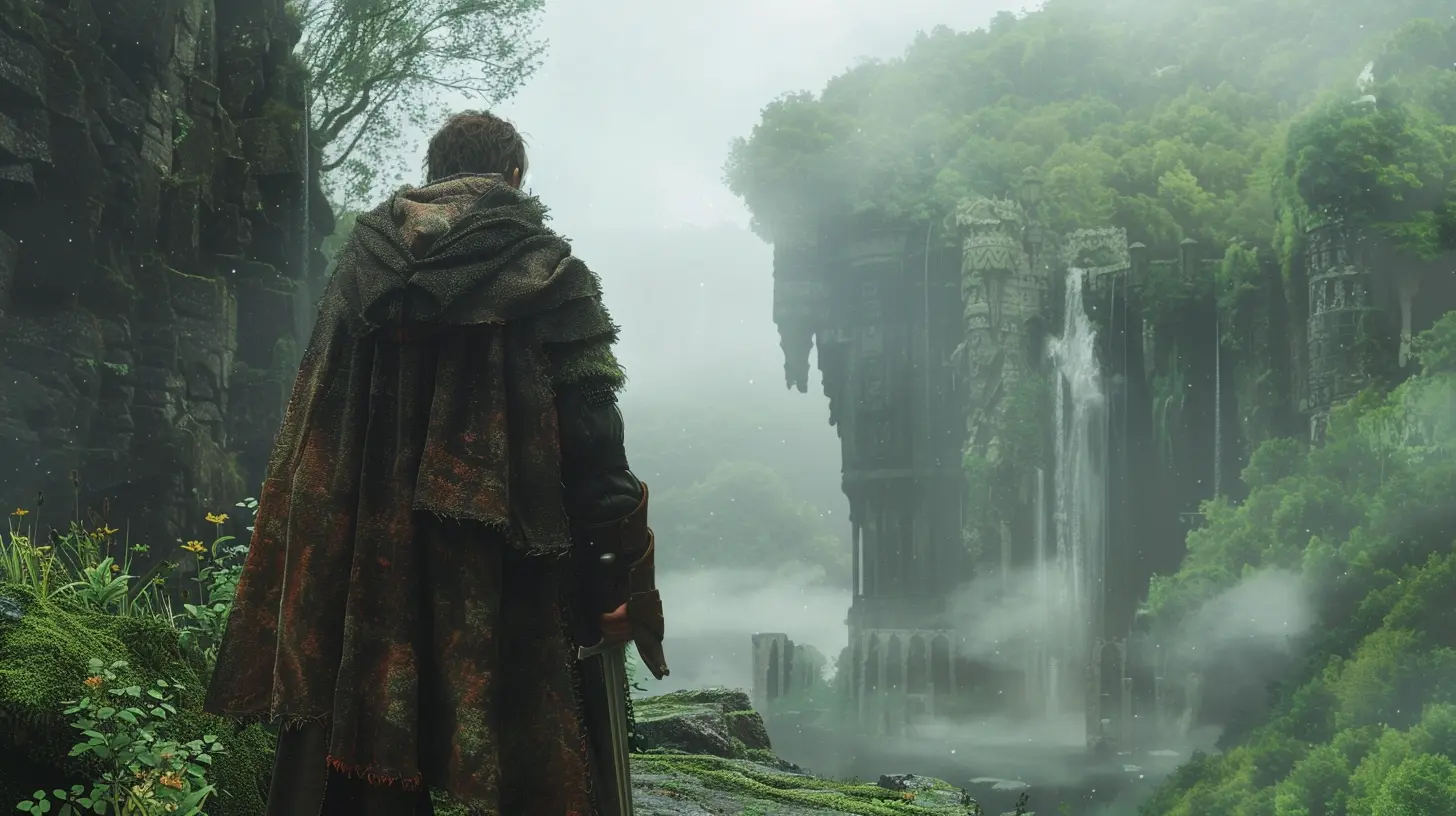
What Is the Hero’s Journey?
Before we dive into the nitty-gritty of fantasy RPGs, let’s talk about the Hero’s Journey. Popularized by Joseph Campbell, this narrative structure is essentially a template for heroic storytelling. It’s the backbone of countless myths, novels, films, and, of course, games. From Frodo in Lord of the Rings to Link in The Legend of Zelda, the Hero’s Journey offers a blueprint that resonates with audiences.Here’s the short version: The Hero’s Journey follows a protagonist (the “hero”) who sets out on an adventure, faces trials, gains allies, confronts a great conflict, and returns changed. It’s all about transformation—turning an ordinary character into someone extraordinary.
In RPGs, this structure fits like a glove. After all, what is an RPG if not a journey of growth? Whether you’re a farmer-turned-warrior, an orphan chosen by destiny, or a reluctant mage burdened with responsibility, you’re going down a path that’s as old as human storytelling itself.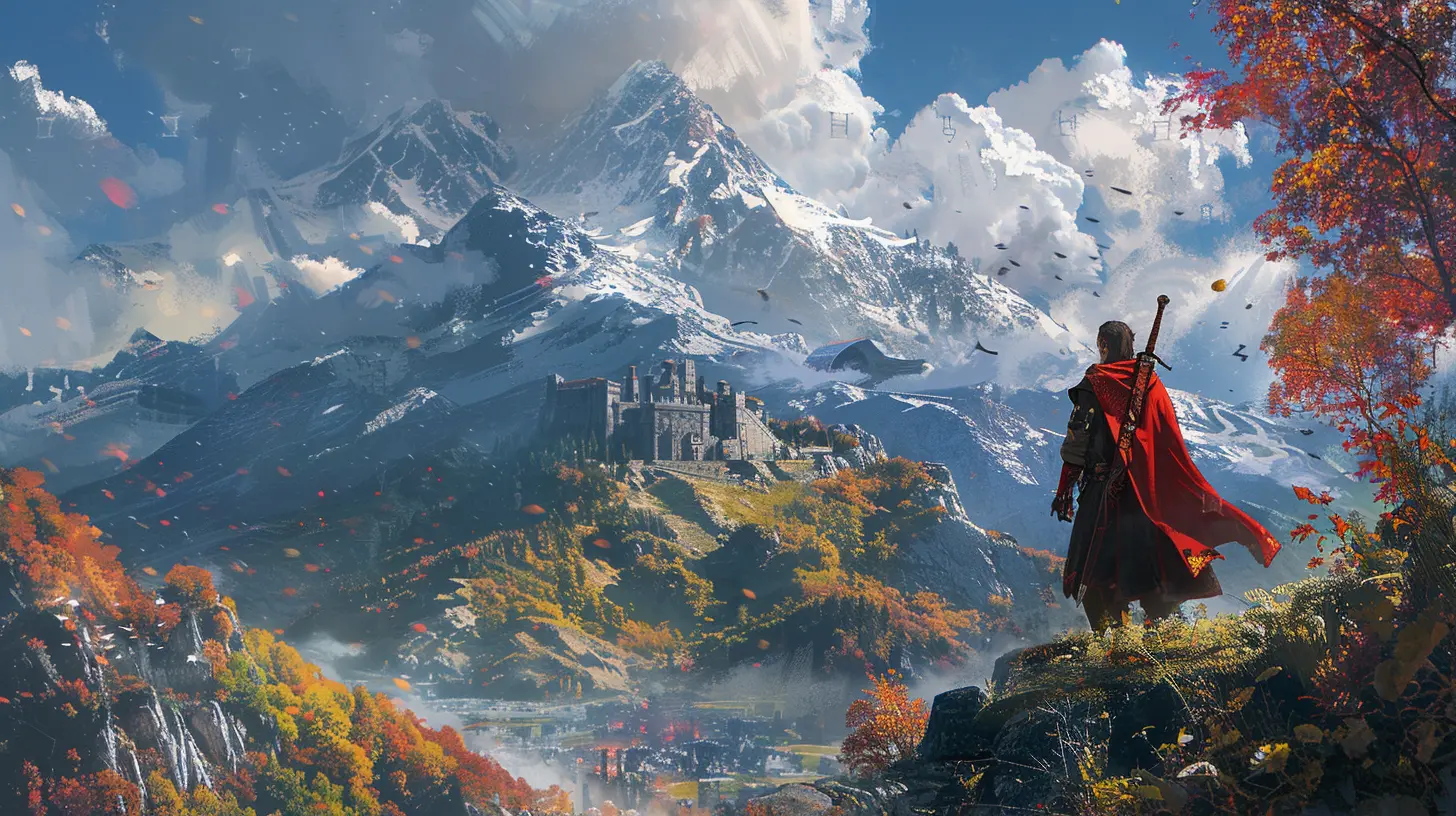
The Hero’s Journey Broken Down: How It Maps to RPGs
Campbell’s Hero’s Journey consists of several stages. Let’s look at how these stages unfold in fantasy RPGs, complete with examples that might hit close to home.1. The Call to Adventure
This is where it all starts. The hero is chilling in their ordinary world—maybe working on a farm or running petty errands in a sleepy village. Then, BAM! Something disrupts the status quo. A mysterious stranger arrives, a dark force looms, or perhaps a prophecy is revealed.In RPG terms, this is where you get your starting quest. Think of Skyrim. You’re just a prisoner minding your own business when, suddenly—a dragon crashes your execution party. Or take Final Fantasy VII: Cloud thinks he’s just working on a mercenary gig with Avalanche until he realizes there’s a deeper threat in Sephiroth.
This moment is the hook. It says, “Hey, get ready because your life’s about to change forever.”
2. Refusal of the Call
Heroes don’t always jump into action willingly. Often, they hesitate or doubt their ability to rise to the occasion. In RPGs, this hesitation is woven into the protagonist’s backstory or dialogue.For example, in Mass Effect, Commander Shepard may not seem reluctant on the surface, but the conversations you have reveal the weight of responsibility bearing down on you. You’re not just saving the galaxy—you’re making choices that define your character.
3. Meeting the Mentor
No hero goes it alone. They often have a wise mentor or guide who shares knowledge, tools, or wisdom for the journey ahead. In fantasy RPGs, mentors are everywhere. Sometimes, it’s literal—like Gandalf in The Lord of the Rings games—or sometimes, it’s through magical artifacts like the Master Sword in The Legend of Zelda.Remember Merlin in Kingdom Hearts or Vesemir in The Witcher 3? These mentors provide that crucial nudge, setting the hero on the right path.
4. Crossing the Threshold
This is where the adventure truly begins. The hero steps out of their comfort zone and into the unknown, brimming with danger and opportunity.In gaming, this is when you leave the tutorial area. Do you remember stepping out of the cave in The Elder Scrolls V: Skyrim and seeing that vast, open world for the first time? Or leaving Midgar in Final Fantasy VII? That moment of crossing the threshold is about stepping into a realm where the stakes are higher and the possibilities are endless.
5. The Tests, Allies, and Enemies
No journey is complete without obstacles. This is where conflict comes into play—whether it’s battling monstrous creatures, solving puzzles, or choosing who you can trust.In RPGs, this is often the heart of gameplay. You’ve got sidequests, dungeons, party members to recruit, and bad guys to face. Think Dragon Age: Origins—every quest shapes your relationships with allies and enemies. Or remember Persona 5, where balancing friendships adds depth to your battles against the system.
6. The Ordeal
This is the hero’s darkest moment, the point where success feels doubtful. In games, this could mean a massive plot twist, an unbeatable boss battle, or a betrayal. It’s the point where you, as the player, might throw your controller and yell, “WHY?!”Games like Dark Souls are built on this concept. The struggle, the frustration—those long, punishing battles make the eventual victory so much sweeter. Similarly, in The Witcher 3, there’s the emotional toll of Geralt’s journey, questioning what really matters by the time you face the Wild Hunt.
7. The Reward
Once the ordeal is overcome, the hero claims their prize. In RPGs, this might be that legendary weapon, a huge stash of loot, or an emotional victory in the narrative.Take The Legend of Zelda: Breath of the Wild. Every divine beast conquered feels like a significant reward, bringing you one step closer to defeating Calamity Ganon.
8. The Road Back and Resurrection
The quest might seem over, but there’s always a final showdown. This is where the hero faces the ultimate boss or challenge, often requiring every lesson they’ve learned along the way.In RPGs, this is your climactic endgame—whether it’s taking down Ganondorf, challenging Sephiroth, or facing the Archdemon in Dragon Age: Origins. Every choice, every skill point allocated, comes to bear on this final fight.
9. Return with the Elixir
Finally, the hero returns home changed. They’ve gained not just treasure but wisdom. In gaming, this is where you reflect on the journey. After you’ve completed the main questline, how did your decisions shape the world? Games like Mass Effect or The Witcher 3 are masters of this—they make you feel like your actions mattered.
Why the Hero’s Journey Works So Well in Fantasy RPGs
Let’s be real: The Hero’s Journey feels natural in RPGs because it mimics the experience of playing them. Starting from nothing, leveling up, forming bonds, conquering challenges, and achieving something bigger than yourself? That’s literally the RPG formula.But here’s the kicker—this framework doesn’t feel stale. Why? Because every game finds a way to make it unique. Sure, the bones are the same, but the flesh is different. One game might lean more into moral choices, while another focuses on exploration or relationships.
The Hero’s Journey also resonates with players on a personal level. Who doesn’t daydream about being the hero of their own story? When we play, we live that fantasy. We’re not just helping Geralt or Cloud—we’re helping ourselves. Every boss defeated or puzzle solved is like shouting, “Yeah, I can do this, too!”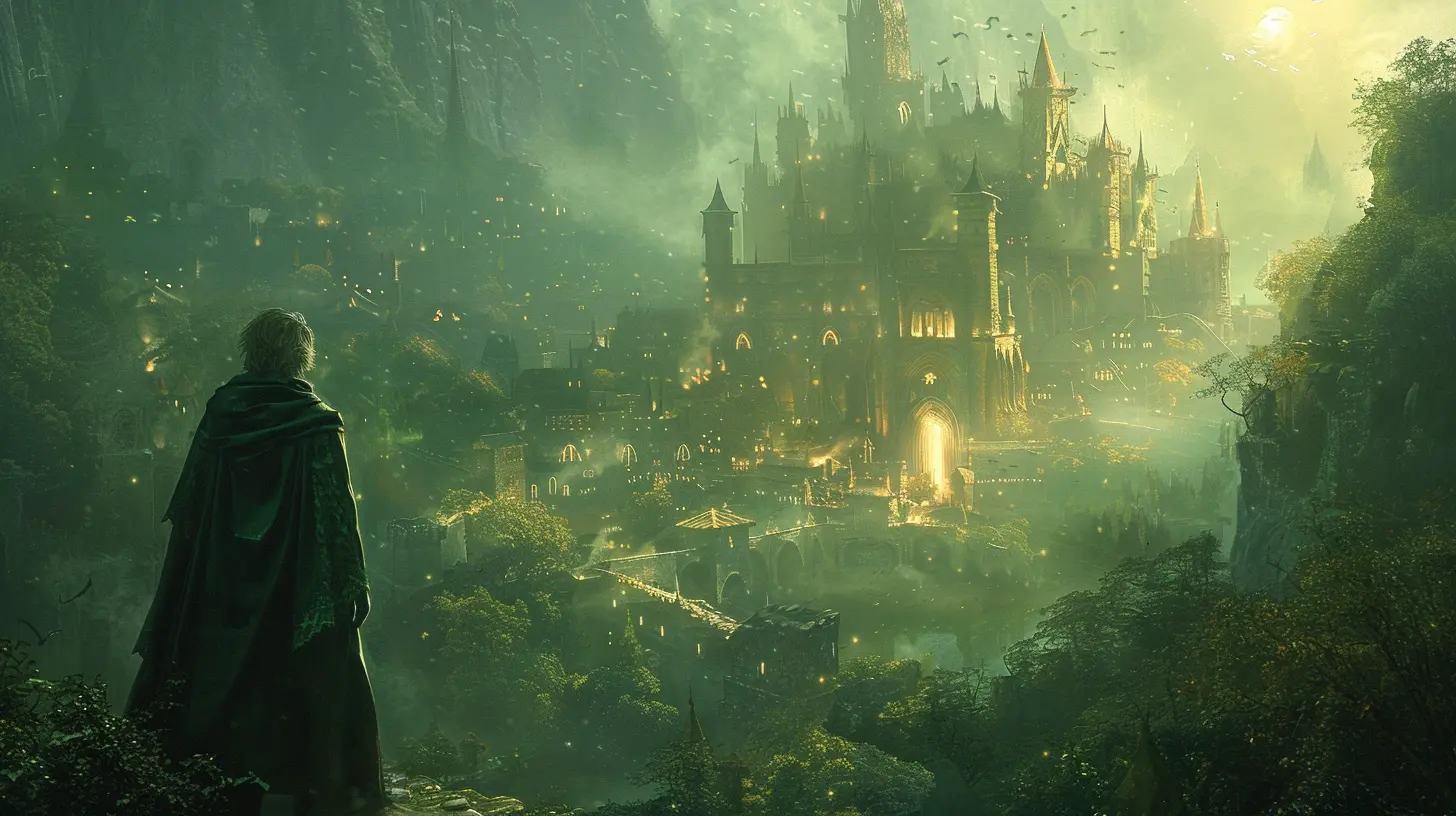
Closing Thoughts: Your Journey Awaits
Next time you boot up your favorite fantasy RPG, take a moment to appreciate the storytelling magic at play. The Hero’s Journey isn’t just a convenient template—it’s a mirror reflecting our own desire for growth, adventure, and transformation. You’re not just pressing buttons; you’re walking a path carved by countless heroes before you. And honestly? That’s pretty epic.So, whether you’re slaying monsters, collecting crystals, or running from dragons, remember this: You’re the hero of this story. Don't forget to enjoy the journey.
all images in this post were generated using AI tools
Category:
Fantasy RpgsAuthor:

Jack McKinstry
Discussion
rate this article
3 comments
Jade McKinnon
Great read! Every hero's journey reminds us that adventure awaits around every corner. Embrace the quests, both in-game and in life—let the fun begin!
May 23, 2025 at 4:08 PM

Jack McKinstry
Thank you! I’m glad you enjoyed it. Adventure truly awaits us all, in fantasy and in life!
Astrid Griffin
This article beautifully captures the heart of fantasy RPGs. The exploration of the Hero's Journey resonates deeply, reminding us of our own quests and growth. Thank you!
May 21, 2025 at 4:34 AM

Jack McKinstry
Thank you for your kind words! I'm glad the article resonated with you and highlighted the essence of the Hero's Journey in fantasy RPGs.
Quillan Mason
Exploring archetypal quests in fantasy RPGs not only enriches storytelling but also deepens player engagement, merging personal growth with epic narratives in immersive worlds.
May 18, 2025 at 4:01 AM

Jack McKinstry
Thank you for your insightful comment! I completely agree that archetypal quests enhance both storytelling and player engagement, creating a deeper connection between personal growth and epic narratives in fantasy RPGs.

